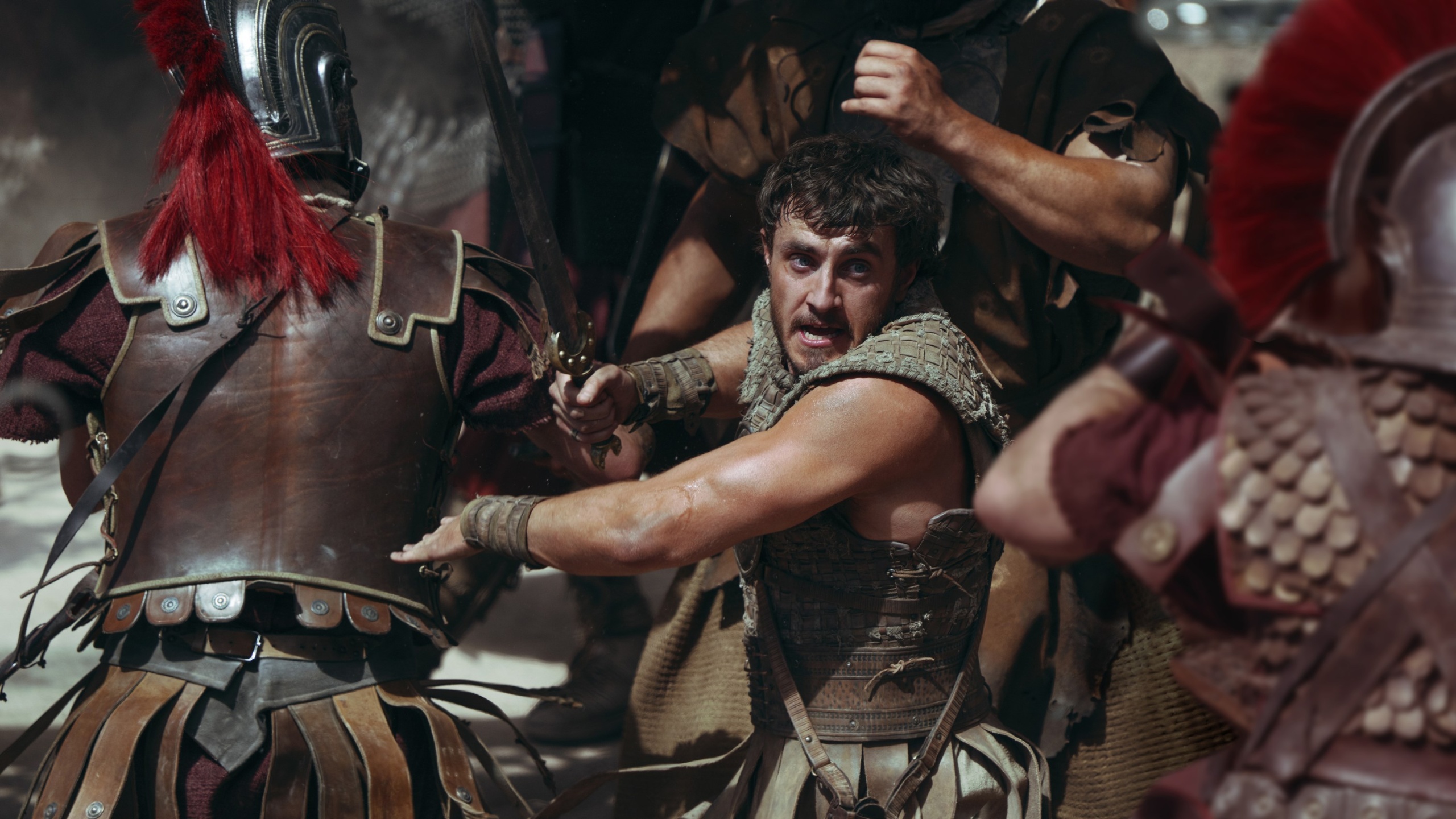Paul Mescal is hoping for an autumn take on “Barbenheimer.”
After the summer blockbuster smash of “Barbie” and “Oppenheimer,” which reinvigorated cinemas and landed both films a slew of Academy Award nominations, including a Best Picture win for “Oppenheimer,” it makes sense why Mescal is looking for “Gladiator II” and “Wicked” to do the same.
Mescal leads Ridley Scott‘s highly-anticipated epic sequel, which opens in theaters November 22, the same day as Jon M. Chu’s buzzy two-part musical adaptation that stars Ariana Grande and Cynthia Erivo.
“‘Wickdiator’ doesn’t really roll off the tongue does it? I think my preference would probably be ‘Glicked’ if it has a similar effect to what it did for ‘Barbie’ and ‘Oppenheimer,’” Mescal told Entertainment Tonight. “It would be amazing ’cause I think the films couldn’t be more polar opposites and it worked in that context previously. So fingers crossed people come out and see both films on opening weekend.”
While “Gladiator II” is set 20 years after the events of the first film, Mescal deemed the upcoming feature an “homage” to the original.
“I think the main thing that I’m excited about is the homage that it pays to the first one, but also the kind of new direction that the film takes,” Mescal said. “I think it’s well-balanced in that regard in terms of the physical action of the film and the balance of the kind of political aspects of the film as well.”
Mescal recently told Vanity Fair that the film is a “very ‘angry young man’ drama” centered on his character Lucius. To transform into a Roman warrior, Mescal was also put into a different “psychological” space to embody the character.
“Muscles start to grow, and that can be deemed aesthetic in certain capacities, but there is something about feeling strong in your body that elicits just a different feeling. You carry yourself differently,” Mescal said. “It has an impact on you psychologically in a way that is useful for the film.”
He added of Lucius, “He can see the way Rome has kind of fallen in on itself,” Mescal said. “Rome represents all the personal neglect that he felt as a child. Suddenly he’s thrust back into that world and has direct proximity to all of the things that he thinks he hates and doesn’t feel attached to anymore.”



